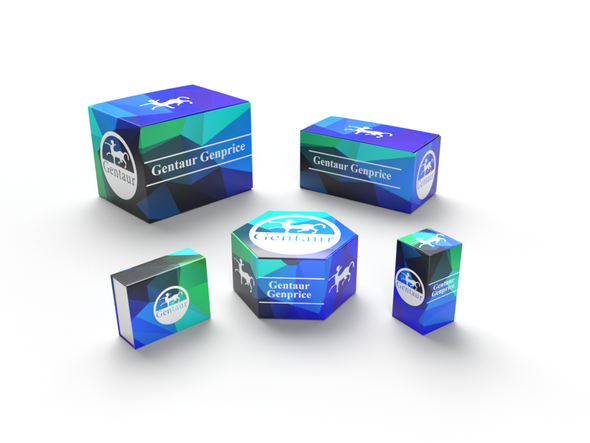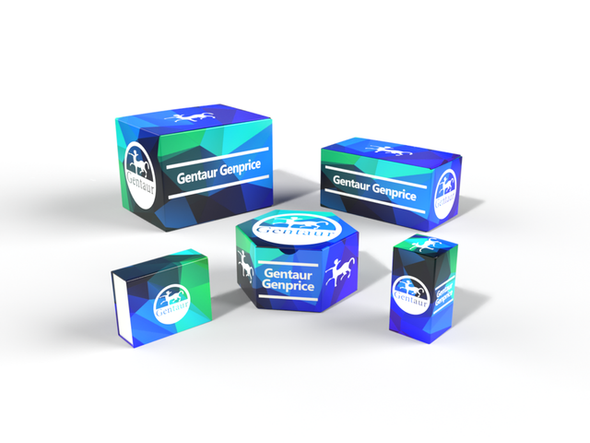Description
ALDOA Antibody | 14-017 | Gentaur UK, US & Europe Distribution
Host: Rabbit
Reactivity: Human, Mouse, Rat
Homology: N/A
Immunogen: Recombinant fusion protein containing a sequence corresponding to amino acids 1-348 of human ALDOA (NP_908930.1) .
Research Area: Cancer, Cell Cycle, Signal Transduction
Tested Application: WB, IF
Application: WB: 1:500 - 1:2000
IF: 1:20 - 1:100
Specificiy: N/A
Positive Control 1: MCF7
Positive Control 2: DU145
Positive Control 3: 293T
Positive Control 4: HepG2
Positive Control 5: Jurkat
Positive Control 6: A-549
Molecular Weight: Observed: 43kDa
Validation: N/A
Isoform: N/A
Purification: Affinity purification
Clonality: Polyclonal
Clone: N/A
Isotype: IgG
Conjugate: Unconjugated
Physical State: Liquid
Buffer: PBS with 0.02% sodium azide, 50% glycerol, pH7.3.
Concentration: N/A
Storage Condition: Store at -20˚C. Avoid freeze / thaw cycles.
Alternate Name: ALDOA, ALDA, MGC10942, MGC17716, MGC17767, GSD12, HEL-S-87p
User Note: Optimal dilutions for each application to be determined by the researcher.
BACKGROUND: The protein encoded by this gene, Aldolase A (fructose-bisphosphate aldolase) , is a glycolytic enzyme that catalyzes the reversible conversion of fructose-1, 6-bisphosphate to glyceraldehyde 3-phosphate and dihydroxyacetone phosphate. Three aldolase isozymes (A, B, and C) , encoded by three different genes, are differentially expressed during development. Aldolase A is found in the developing embryo and is produced in even greater amounts in adult muscle. Aldolase A expression is repressed in adult liver, kidney and intestine and similar to aldolase C levels in brain and other nervous tissue. Aldolase A deficiency has been associated with myopathy and hemolytic anemia. Alternative splicing and alternative promoter usage results in multiple transcript variants. Related pseudogenes have been identified on chromosomes 3 and 10.






